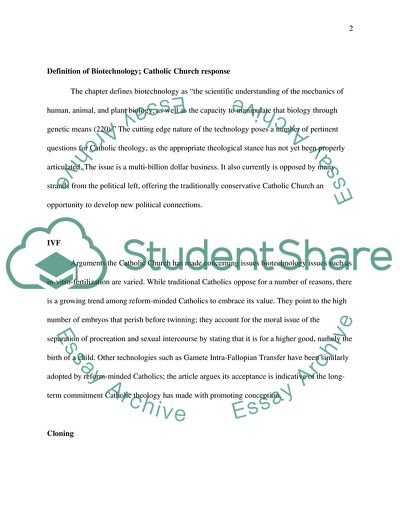Cite this document
(The Future of Church Book Report/Review Example | Topics and Well Written Essays - 1250 words, n.d.)
The Future of Church Book Report/Review Example | Topics and Well Written Essays - 1250 words. https://studentshare.org/religion-and-theology/1732635-summary-of-chapter-6-the-biotech-revolution-which-is-in-this-book-the-future-church-written-by-john-allen-jr
The Future of Church Book Report/Review Example | Topics and Well Written Essays - 1250 words. https://studentshare.org/religion-and-theology/1732635-summary-of-chapter-6-the-biotech-revolution-which-is-in-this-book-the-future-church-written-by-john-allen-jr
(The Future of Church Book Report/Review Example | Topics and Well Written Essays - 1250 Words)
The Future of Church Book Report/Review Example | Topics and Well Written Essays - 1250 Words. https://studentshare.org/religion-and-theology/1732635-summary-of-chapter-6-the-biotech-revolution-which-is-in-this-book-the-future-church-written-by-john-allen-jr.
The Future of Church Book Report/Review Example | Topics and Well Written Essays - 1250 Words. https://studentshare.org/religion-and-theology/1732635-summary-of-chapter-6-the-biotech-revolution-which-is-in-this-book-the-future-church-written-by-john-allen-jr.
“The Future of Church Book Report/Review Example | Topics and Well Written Essays - 1250 Words”. https://studentshare.org/religion-and-theology/1732635-summary-of-chapter-6-the-biotech-revolution-which-is-in-this-book-the-future-church-written-by-john-allen-jr.


